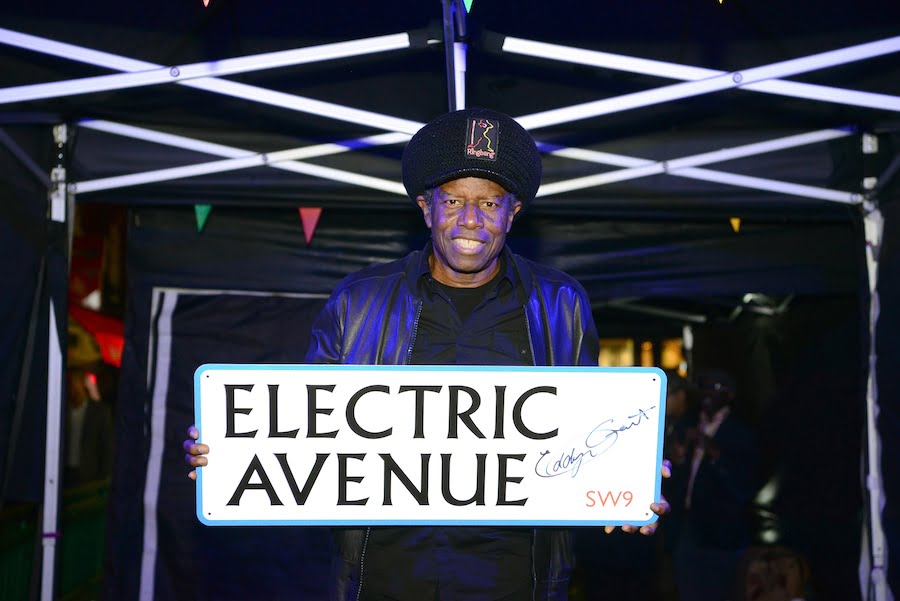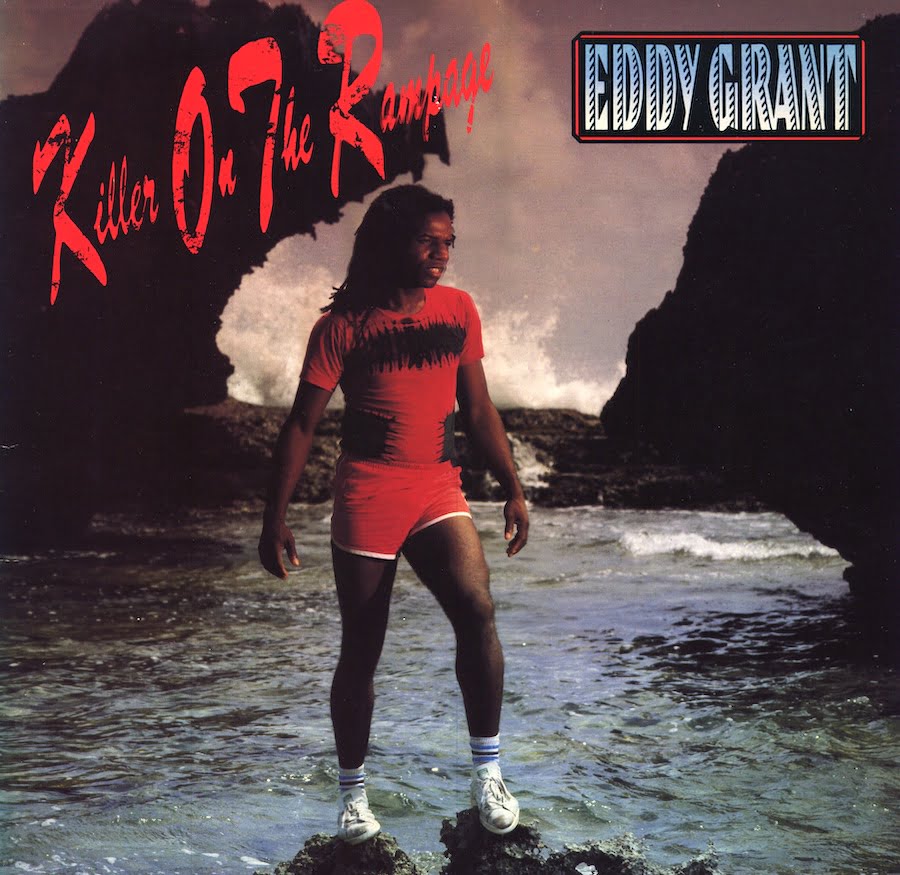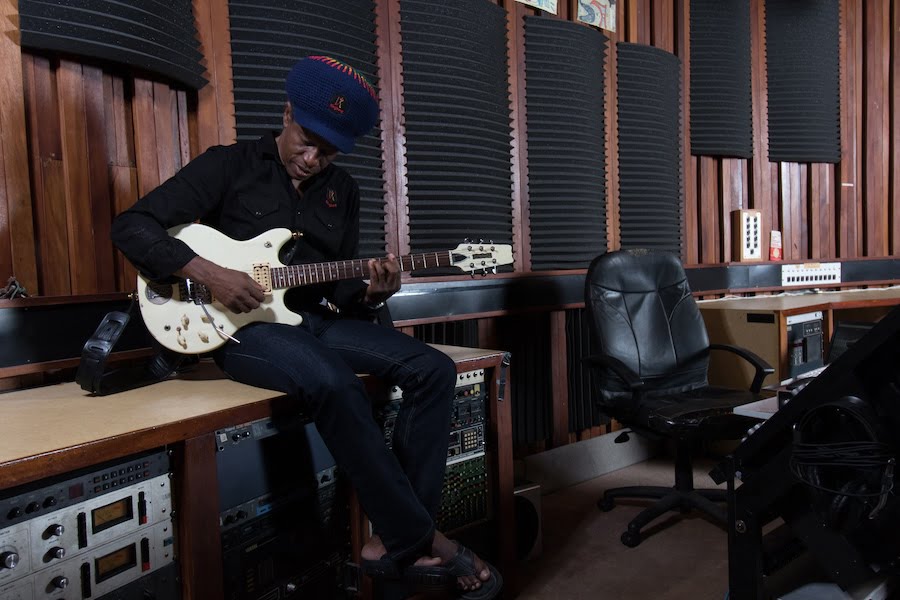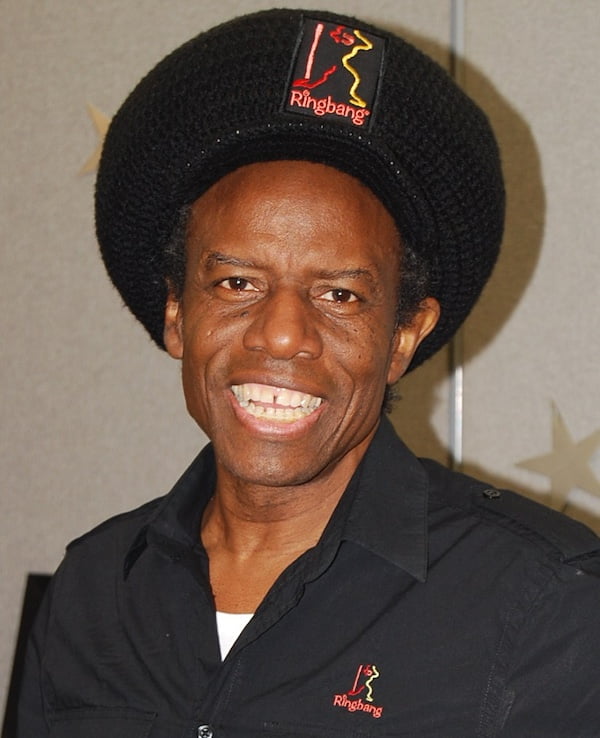
[ad_1]

A trailblazer for the reason that mid-60s, Eddy Grant is one in every of pop’s nice survivors. On this unique interview, the singer-songwriter reveals all about his near-fatal coronary heart assault, taking over Donald Trump and the way he’s been unafraid to make hits out of politically-charged subject material…
At the daybreak of the 70s, Eddy Grant, it appeared, had all of it. There he was, a man in his early twenties with a spouse,
a few sprogs, and a victorious profession as lead guitarist and songwriter of The Equals, most well-known for his or her chart-conquering hit, Child, Come Again.
He was virtually the poster boy for clear dwelling, proving that you simply didn’t must be a drug-chasing libertine to be a pop star within the 60s. If there was an anti-Keith Richards on the time, it was Eddy Grant.
Coronary heart assaults aren’t imagined to be on the agenda for teetotal, vegetarian, sports-loving twentysomethings, however on New Yr’s Eve 1971 that’s precisely what occurred to the person born Edmond Montague Grant when he discovered himself in intensive care, having suffered a large coronary.
“Oh brother, it was mind shattering, coronary heart shattering,” the now 75-year-old and preventing match Eddy Grant tells Basic Pop, over Zoom from his house in Barbados. “It stopped me useless and made me have a look at my life another way.”
Little might he have recognized then, mendacity there within the ICU, that his best successes had been nonetheless forward of him.
He’d chalked up a trinity of Prime 10 hits with The Equals: (1968’s aforementioned UK No.1 Child, Come Again, 1969’s Viva Bobby Joe and 1970’s incendiary Black Pores and skin Blue Eyed Boys, which was later lined by The Specials), however his greatest pop hits had been nonetheless to come back.
“When one thing goes fallacious together with your coronary heart, you turn out to be this previous man. Even strolling to the lavatory is a ache,” he says, wincing on the reminiscence. “Your entire set of circumstances change and it’s a must to decelerate. It’s a must to take into consideration the whole lot very fastidiously earlier than you act.”
Reluctantly, Eddy walked away from The Equals, the multi-racial rock-soul outfit he’d helped type in 1965 (“I attempted to make an adjustment,” he says, “and the adjustment couldn’t be made throughout the context of the band”), taking 12 months off to let himself mend.
For the following few years he wrote songs, produced different artists (The Pyramids, Prince Buster) and arrange his personal recording studio at his house in Hackney.
In 1975, he lastly launched his debut solo album, the eponymous Eddy Grant. Besides neither that, nor its fiery follow-up, 1977’s Message Man, caught the general public’s eye.
Then, in 1979, Residing On The Frontline occurred. Its closely politicised lyrics set in opposition to thick slabs of chart-friendly synth proved irresistible, propelling it to No.11 within the UK.
There have been occasional chart wins over the approaching years (1980’s Do You Really feel My Love, 1981’s Can’t Get Sufficient Of You), however his following was largely confined to Africa and the Caribbean.
That each one modified with I Don’t Wanna Dance and its guardian LP, 1982’s genre-hopping Killer On The Rampage.
“It appeared like all people knew one thing was taking place with that file,” Grant says. Even his stonemason, a man referred to as Redman, sensed it was the massive one.
“He stated to me, ‘Boss, I don’t know a lot about music, however that file’s going to be No.1.’ And it was, it was a whacking nice hit for me.”
ELECTRIC SHOCK
As seismic as I Don’t Wanna Dance was over right here, it didn’t even break the Prime 50 within the US. The music that made his title within the States was Killer On The Rampage’s follow-up, the crazily catchy Electrical Avenue, which peaked at US No.2. However don’t point out that chart putting to Eddy.
“I’m a constructive particular person, I don’t like to harp on about unfavorable issues,” he says, “however to me, No.2 is unfavorable. I imply, it was No.1 on Cashbox.
“Individuals preserve harping on about it being No.2 on the Billboard, however on the similar time, it was No.1 in Cashbox. So I, being the constructive man that I’m, I say Electrical Avenue was high of the charts in america of America.”
 Forty years on, Grant admits that its success Stateside was bittersweet. Whereas it was his first hit there (No.1 or No.2, you determine), DJs didn’t appear curious about spinning the rest along with his title on it.
Forty years on, Grant admits that its success Stateside was bittersweet. Whereas it was his first hit there (No.1 or No.2, you determine), DJs didn’t appear curious about spinning the rest along with his title on it.
“It ostensibly stopped my progress in america,” he says regretfully. “As a result of bear in mind, I Don’t Wanna Dance was No.1 all around the world.
“And so I’ve bought this now to ship and the blokes gained’t cease taking part in Electrical Avenue, until right now! I imply, I Don’t Wanna Dance, each baby and each 90-year-old can sing it. By no means bought an opportunity in america… thus far.”
For all of his music’s infectious danceability, these songs have a pointy political chew. However whereas there’s hearth, there’s additionally positivity.
Simply cock your ear to 1988’s anti-apartheid-inspired Gimme Hope Jo’anna, which, in addition to raging in opposition to the white South African authorities, additionally stays optimistic that change is on the horizon – democracy lastly got here to the rainbow nation in 1994.
“I’m completely a believer that music can change a lot of issues,” he says. “What music can’t do is drive folks to alter. It’s very tough to result in drastic social change, however you’ll be able to create a better sensibility and from that, little bits and items of social change can happen.
Gimme Hope Jo’anna tickles folks’s imaginations that it’s doable to alter. That music was well-liked amongst white South Africans as properly, so right here you’ve bought a music that’s decrying apartheid and the very people who find themselves executing this apartheid find it irresistible.
“A music is a really highly effective factor if the message is correct, the beat is correct, and so many different issues. It’s not simply phrases and it’s not simply music, it’s a non secular entity that floats round within the ether and each now and once more it should land in some nation and other people will see its worth.
“I imply, Gimme Hope Jo’anna was being performed because the German Nationwide Soccer World Cup music! It turned huge. Then Joe Allen got here and bought it for Wales. It’s common.”
But when singles like Gimme Hope Jo’anna may be adopted by soccer golf equipment and sporting occasions (in 2017, The Solar modified its lyrics to assist Brit tennis professional Johanna Konta at Wimbledon), his songs can be appropriated by darker forces.
In 2020, Donald J Trump used the observe – with out permission, natch – on an anti-Biden advert. Grant then sued the previous President for copyright infringement, searching for $300,000 in damages. One other authorized headache for The Donald.
“The matter is subjugate,” he says cautiously, when we broach the topic. “However, sure, I did sue Donald Trump, and sure, it’s within the courts, however Donald Trump is aware of the right way to circumnavigate points. It’s nothing private. I don’t hate Donald Trump, I don’t hate anyone.”
FUELLING THE FIRE
Like Trump, although, Eddy Grant is one other septuagenarian with hearth in his stomach, even when the targets of their ire are very completely different. In 2006, Grant launched Reparation, an album which referred to as for restitution for the transatlantic slave commerce.
Requested what fuels his fury in 2023, it’s not simply the dire state of the world, however the truth that few artists are as politically engaged as he and his contemporaries had been 40 years in the past.
“They don’t even write these sort of songs anymore,” he says. “It’s like writers have gotten author’s block relating to socially acutely aware lyrics as a result of they’ll’t get hits out of them.
“However I get hits with them on a regular basis. I don’t write them due to vogue, or to get a success. My brother stated to me on so many events, ‘Why do you write these songs? The BBC gained’t play them!’
“However I don’t write songs for the BBC. In the event that they play them, high quality, in the event that they don’t, they don’t – some technology will discover them, like how I discovered Johnny B Goode.
“Johnny B Goode wasn’t a success in Guyana, it wasn’t a success in Trinidad or Barbados, nothing. No person on this a part of the world actually is aware of Chuck Berry. However the place he’s been wanted, that’s the place he’s.”

And it’s truthful to say that Britain wanted Eddy Grant within the 80s, which is why the Camden Music Stroll Of Fame lately honoured the Guyanese-born, Kentish City-raised songwriter with a pavement plaque alongside different musical giants together with UB40, The Sugarhill Gang, Buzzcocks, The Kinks and Shalamar.
“I lived there, I wrote there, I drove there, I turned a man there,” he instructed us, a number of weeks earlier than the ceremony. “Why would I not need to be recognised in historical past? As a result of it’s all about historical past, it’s all about what you’ve performed. If you depart this world, and I’m 75 years previous now, it’s what you’ve performed that counts, not who you might be.
“No person in years to come back will know Eddy Grant or Paul McCartney. Time erodes just like the river erodes the financial institution. So yeah, there can be some common acknowledgement, however take into consideration the billions of individuals that can come and go. As a lot because the stone will survive, I’ll survive.”
FACING THE FUTURE
There’s a way during which an honour just like the Camden Music Stroll Of Fame is a punctuation mark that tells the world that an artist’s greatest work is behind them.
When a few of us attain a sure age, dying appears a lot nearer, however Eddy Grant first confronted that worry 52 years in the past and seems untroubled by ideas of mortality.
“No matter it’s that God has for me on this world, he brings it to me,” he says matter-of-factly. “I don’t chase fame, I don’t chase cash… these items come to me. And if it doesn’t come to me, then I motive that it’s not good for me.
“With that, I’ve a lot of issues that I do. I like previous buildings so I spend a whole lot of time fixing my house. I do issues in Guyana and in England – it helps to make some mark on the earth or within the air – and as I’m doing these items, the songs come.”
Grant’s subsequent album is, he claims, within the can. It’s been six years since his final LP, the paean to his youth, Plaisance (named after the city the place he was born in 1948), however he admits that his consideration lately has been taken up with butting heads with Spotify and Apple Music.
Grant hasn’t allowed his albums onto any streaming providers, describing the royalties paid to musicians as “garbage”.
“In streaming,” he factors out, “it’s a must to do, I don’t know, 500 million downloads earlier than you will get per week’s wage or one thing like that.”

Although album quantity 17 is completed and dusted, the singer says he’s at the moment “ready for the second to launch it”.
Practically 60 years into his profession, Grant’s ardour for the facility of music burns as white-hot because it did on the very starting.
Rewind six many years and, earlier than the sounds of Chuck Berry stirred him to select up a guitar, he’d deliberate to review medication, so he “might do some good for folks”. Certainly, we recommend, he’s nonetheless ended up doing good for folks, solely as a musician, not a surgeon.
“Music is a superb physician,” he beams. “It’s most likely a greater physician than those that go to school and examine for seven years. Music cures, most likely extra issues than the knife.”
It’s one thing coronary heart assault survivor Eddy Grant is aware of solely too properly. Now 52 years on from his near-fatal coronary, he’s a dwelling instance of the therapeutic energy of pop.
[ad_2]